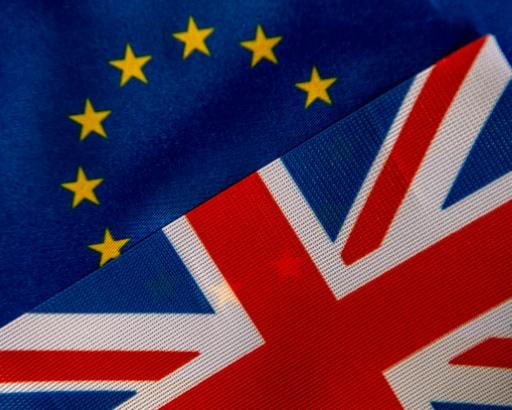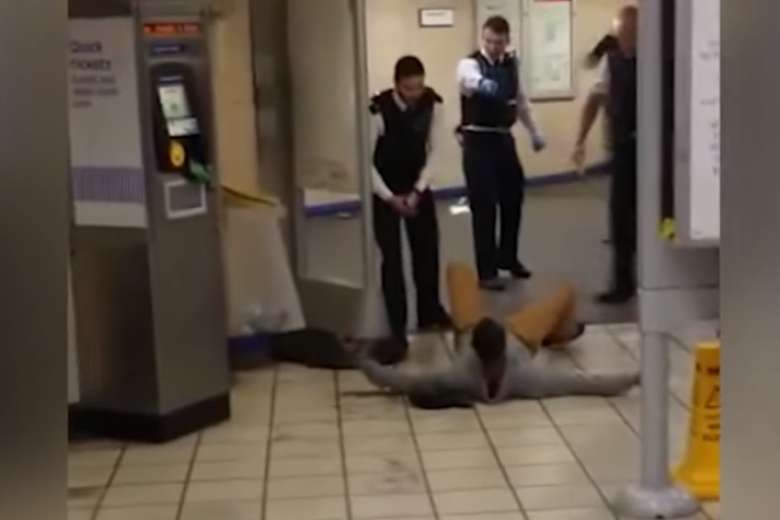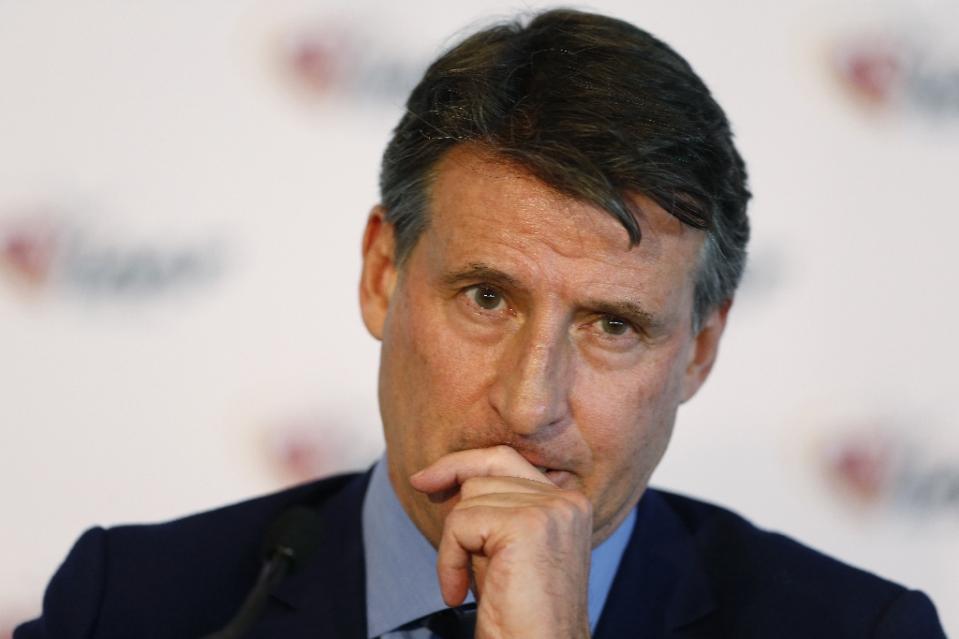
Entertainment
-
 DiscoverEU marks 40 years of Schengen with 40,000 free travel passes for young Europeans
The European Commission is celebrating the 40th anniversary of the Schengen Area by offering 40,000 young Europeans the chance to explore the continent through DiscoverEU, part of the31 October 2025Read More...
DiscoverEU marks 40 years of Schengen with 40,000 free travel passes for young Europeans
The European Commission is celebrating the 40th anniversary of the Schengen Area by offering 40,000 young Europeans the chance to explore the continent through DiscoverEU, part of the31 October 2025Read More... -
 Brussels universities to award honorary doctorates to Stromae, Lize Spit, and Amélie Nothomb
The Vrije Universiteit Brussel (VUB) announced on Monday that Stromae, Lize Spit, Amélie Nothomb, François Schuiten, and Ever Meulen will receive joint honorary doctorates from VUB and27 October 2025Read More...
Brussels universities to award honorary doctorates to Stromae, Lize Spit, and Amélie Nothomb
The Vrije Universiteit Brussel (VUB) announced on Monday that Stromae, Lize Spit, Amélie Nothomb, François Schuiten, and Ever Meulen will receive joint honorary doctorates from VUB and27 October 2025Read More... -
 Stolen Renaissance masterpiece returns to Italy after 52 years
After more than half a century, a stolen Renaissance painting has finally returned home to Italy. *Madonna with Child*, a tempera-on-wood masterpiece by Venetian painter Antonio Solario,31 July 2025Read More...
Stolen Renaissance masterpiece returns to Italy after 52 years
After more than half a century, a stolen Renaissance painting has finally returned home to Italy. *Madonna with Child*, a tempera-on-wood masterpiece by Venetian painter Antonio Solario,31 July 2025Read More... -
 Belgian seaside resorts: highlights of royal De Panne
While Ostend is often dubbed the queen of Belgium’s seaside resorts, the country’s coastline offers many other gems worth discovering. In this series, Belga English explores four distinctive20 July 2025Read More...
Belgian seaside resorts: highlights of royal De Panne
While Ostend is often dubbed the queen of Belgium’s seaside resorts, the country’s coastline offers many other gems worth discovering. In this series, Belga English explores four distinctive20 July 2025Read More... -
 Louis Vuitton named suspect in Dutch money laundering probe
Luxury fashion house Louis Vuitton has been named a suspect in a Dutch money laundering investigation, according to the Dutch Public Prosecution Service (OM). The OM alleges that18 July 2025Read More...
Louis Vuitton named suspect in Dutch money laundering probe
Luxury fashion house Louis Vuitton has been named a suspect in a Dutch money laundering investigation, according to the Dutch Public Prosecution Service (OM). The OM alleges that18 July 2025Read More... -
 Brussels tops global rankings for international meetings as tourism soars to new heights
Brussels has once again secured its position as the world’s top city for international meetings, according to the latest annual report from the Union of International Associations (UIA).26 June 2025Read More...
Brussels tops global rankings for international meetings as tourism soars to new heights
Brussels has once again secured its position as the world’s top city for international meetings, according to the latest annual report from the Union of International Associations (UIA).26 June 2025Read More... -
 Coffee prices keep climbing in Czech establishments
The cost of a cup of coffee in Czech restaurants and cafés has increased by 4% over the past year, now averaging CZK 57.80, according to data from the Dotykačka point-of-sale system.15 June 2025Read More...
Coffee prices keep climbing in Czech establishments
The cost of a cup of coffee in Czech restaurants and cafés has increased by 4% over the past year, now averaging CZK 57.80, according to data from the Dotykačka point-of-sale system.15 June 2025Read More...
News
-
 Indonesia takes delivery of first Rafale fighter jets in $8 billion defence upgrade
Indonesia has officially taken delivery of its first Rafale fighter jets from France, marking a major milestone in the country’s push to modernise its ageing military fleet.Read More...
Indonesia takes delivery of first Rafale fighter jets in $8 billion defence upgrade
Indonesia has officially taken delivery of its first Rafale fighter jets from France, marking a major milestone in the country’s push to modernise its ageing military fleet.Read More... -
 EU must build over 2 million homes annually by 2035 to avert housing crisis, new data shows
The European Union will need to build more than two million new homes every year until 2035 to keep up with soaring demand, according to new projections released by the EuropeanRead More...
EU must build over 2 million homes annually by 2035 to avert housing crisis, new data shows
The European Union will need to build more than two million new homes every year until 2035 to keep up with soaring demand, according to new projections released by the EuropeanRead More... -
 Police raid homes and offices of French Culture Minister Rachida Dati in corruption probe
French police searched Culture Minister Rachida Dati’s home and offices on Thursday as part of a widening corruption investigation linked to her tenure as a European Parliament lawmaker,Read More...
Police raid homes and offices of French Culture Minister Rachida Dati in corruption probe
French police searched Culture Minister Rachida Dati’s home and offices on Thursday as part of a widening corruption investigation linked to her tenure as a European Parliament lawmaker,Read More... -
 White Christmas unlikely in Switzerland, MeteoSwiss says
The chances of a white Christmas in Switzerland are slim, with snowfall in the lowlands virtually ruled out, according to the Federal Office of Meteorology and Climatology (MeteoSwiss).Read More...
White Christmas unlikely in Switzerland, MeteoSwiss says
The chances of a white Christmas in Switzerland are slim, with snowfall in the lowlands virtually ruled out, according to the Federal Office of Meteorology and Climatology (MeteoSwiss).Read More... -
 Guy Parmelin elected Swiss President for 2026 with record-breaking vote
Economics Minister Guy Parmelin will serve as President of the Swiss Confederation in 2026, securing the office with a result that sets a new benchmark for the current millennium.Read More...
Guy Parmelin elected Swiss President for 2026 with record-breaking vote
Economics Minister Guy Parmelin will serve as President of the Swiss Confederation in 2026, securing the office with a result that sets a new benchmark for the current millennium.Read More... -
 Nigeria seeks French support to tackle insecurity, Macron says
Nigerian President Bola Tinubu has requested increased support from France to combat escalating insecurity in the country’s north, French President Emmanuel Macron said on Sunday,Read More...
Nigeria seeks French support to tackle insecurity, Macron says
Nigerian President Bola Tinubu has requested increased support from France to combat escalating insecurity in the country’s north, French President Emmanuel Macron said on Sunday,Read More... -
 Swiss army has “gone back to sleep,” says departing chief
Switzerland briefly awakened to the urgency of national defence following Russia’s 2022 invasion of Ukraine — but has since drifted back into complacency, outgoingRead More...
Swiss army has “gone back to sleep,” says departing chief
Switzerland briefly awakened to the urgency of national defence following Russia’s 2022 invasion of Ukraine — but has since drifted back into complacency, outgoingRead More...

Most Read
- Teen held after US woman killed in London stabbings
- Football: Farhad Moshiri adamant Everton deal above board
- Greece hails new post-bailout chapter but concerns remain
- The Kokorev case caused wide discussion in Brussels
- EU accession talks stir debate in Moldova: insights from Gagauzia's leader, Yevgenia Gutsul
Politics

Prime Minister David Cameron warned on Sunday (June 12) that Britain faces a "lost decade" if it leaves the EU, as he races to persuade undecided voters less than two weeks before a close referendum.
With several recent opinion polls suggesting momentum is with the "Leave" camp, Cameron is making a string of television appearances to try to convince people to back "Remain" on June 23.
A string of global institutions including the International Monetary Fund (IMF) and G7 have backed Cameron's argument that Britain's economy would be damaged by Brexit.

The rival camps in Britain's EU membership referendum tore into each other Thursday in an ill-tempered first television debate dominated by accusations of lies and scaremongering.
Former London mayor Boris Johnson and Scottish First Minister Nicola Sturgeon traded barbs in a two-hour, six-way spat fought on the main battlegrounds of immigration and the economy.
The debate ended two hours before the extended deadline to register to vote in the June 23 referendum on whether Britain should stay in the European Union or leave the 28-country bloc.
Brexit campaigners accused the government of trying to rig the referendum and threatened legal action after MPs approved emergency legislation to push back the deadline by 48 hours, due to the registration website crashing on Tuesday due to overwhelming demand.
The move has infuriated the "Leave" camp because many late online requests have been from broadly pro-EU younger voters.

David Cameron argued Tuesday that remaining part of the EU was the "British thing to do" as he faced senior eurosceptic Nigel Farage in a TV grilling two weeks before a knife-edge referendum.
Urgently seeking a breakthrough, the prime minister spoke out against what he called Farage's "little England" vision and played the patriotism card by saying a June 23 out vote would mean "quitting, and I don't think we're quitters".
Despite an assured performance, Cameron faced repeated hostile questions from the audience on high immigration from the European Union to Britain, the "Leave" side's trump card during the campaign.
"I really fear if we leave that we're going to see the economy suffer," Cameron said at London's Olympic Park in a programme for the broadcaster ITV.
"I would say the right thing to do, the British thing to do is to fight for a Great Britain inside the EU and not take the Nigel Farage little England option," he added.

The earliest dated handwritten document from Britain has been unearthed in the heart of London, archeologists announced Wednesday, among a trove of Roman writing tablets revealing the city's commerce-driven beginnings.
The wooden tablet, a notice of debt owed dated January 8, 57 -- less than 14 years after the Roman invasion of 43 -- was found deep beneath what is now the City of London financial hub.

A man slashed the throat of a London Underground passenger for his "Syrian brothers", a court heard on Tuesday.
The aftermath of the incident in December (2015) was captured on mobile phone footage, and a bystander's retort to the attacker - "You ain't no Muslim, bruv" - became famous in Britain.
Muhiddin Mire, a 30-year-old Somali-born taxi driver, is accused of attacking 56-year-old musician Lyle Zimmerman at Leytonstone Tube station in east London.

More than 45 million men, women and children globally are trapped in modern slavery, far more than previously thought, with two-thirds in the Asia-Pacific, a study showed Tuesday.
The details were revealed in the 2016 Global Slavery Index, a research report by the Walk Free Foundation, an initiative set up by Australian billionaire mining magnate and philanthropist Andrew Forrest in 2012 to draw attention to the issue.
It compiled information from 167 countries with 42,000 interviews in 53 languages to determine the prevalence of the issue and government responses.
It suggested that there were 28 percent more slaves than estimated two years ago, a revision reached through better data collection and research methods.
The report said India had the highest number of people trapped in slavery at 18.35 million, while North Korea had the highest incidence (4.37 percent of the population) and the weakest government response.
Modern slavery refers to situations of exploitation that a person cannot leave because of threats, violence, coercion, abuse of power or deception.
They may be held in debt bondage on fishing boats, against their will as domestic servants or trapped in brothels.

London Olympics chief Sebastian Coe said it would be "delusional" to think the 2012 Games in the British capital may have been the dirtiest in history in the wake of more positive drugs tests.
A total of 23 positive results came from 265 retested samples, the International Olympic Committee said, on top of over 30 previous failed tests from competitors who had been caught either during the Games or since.
The high percentage of apparent doping offences sparked suggestions on Friday that London was rife with cheating, but Coe denies that is the case.
Coe, now the president of world athletics' governing body the IAAF, served as the London 2012 organising committee chairman.
The former middle-distance track star claims in the Sunday Telegraph that at the time of the 1984 Olympics in Los Angeles, where he competed and won 1500 metres gold, technology was "prehistoric" and says many athletes would pick and base their schedules on the athletics circuit "in large part on the avoidance of testing".

A cross-party parliamentary committee on Friday condemned the "arms race of ever more lurid claims" on both sides of Britain's European Union referendum debate, saying it was confusing the public.
Lawmakers on the Treasury committee highlighted the "highly misleading" claim by the "Vote Leave" campaign that Britain could save £350 million (460 million euros, $512 million) a week by leaving the bloc.
They also criticised the "Remain" camp for suggesting that three million jobs depended on continued membership of the EU, and that households could be up to £4,300 a year worse off in the event of a so-called Brexit.
"The arms race of ever more lurid claims and counter-claims made by both the leave and remain sides is not just confusing the public. It is impoverishing political debate," said committee chairman Andrew Tyrie, a member of the ruling Conservative party.

London's new mayor Mayor Sadiq Khan told AFP on Thursday (May 26) he was pushing a "positive case" for staying in the EU rather than simply predicting doom if Britain votes out.
He said a victory for Remain campaigners in the June 23 referendum would help boost workers' rights, improve air quality and support the battle against climate change while keeping Britain safe.
"What we need to be doing, people like me who passionately believe that we should remain in the European Union, is to argue the positive case for remaining," he told AFP as he launched his campaign at a meeting with young entrepreneurs in the British capital.

All-night services on London's Underground trains will be launched for the first time in August, the city's new mayor said Monday, despite union protests against the move.
The long-awaited 24-hour services will be launched on August 19 on two of the network's 11 lines on Friday and Saturday nights before being rolled out more widely.
The London Underground, widely known as the Tube, dates back to 1863 and carries over one billion passengers every year.
"The Night Tube is absolutely vital to my plans to support and grow London's night-time economy -- creating more jobs and opportunities for all Londoners," said Sadiq Khan, who was elected as London's mayor earlier this month.
"The constant delays under the previous mayor let Londoners down badly."



















